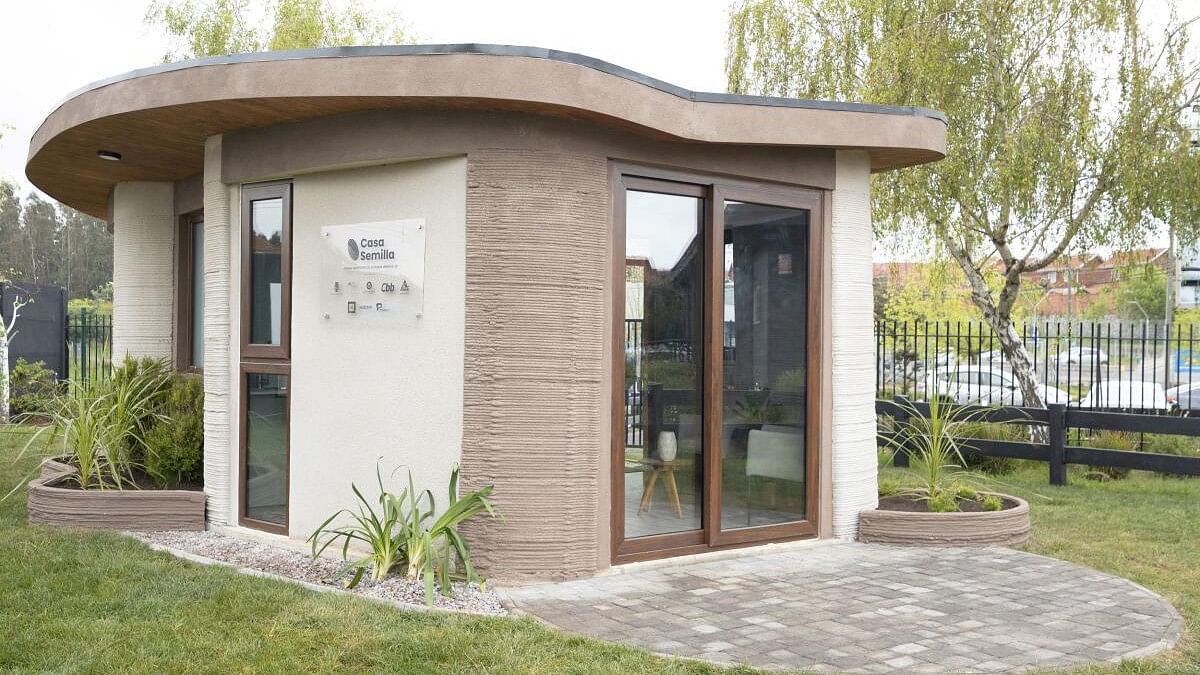
A house known as 'Casa Semilla', Latin America's first 3D-printed prototype house, made by a Bio Bio University team, is presented in Concepcion, Chile in this undated handout photo.
Credit: Reuters Photo
Concepcion (Chile): A university team in Chile has built a huge 3D-printed concrete home that they say is Latin America's first such building, using a robot "printer" that pours layers of concrete based on a digital plan controlled by a computer.
The so-called "seed house" used an Atenea-UBB printer and a KUKA KR120 industrial robot to rapidly create the compact home, pouring layer upon layer of concrete to build the walls in just 29 hours. It then took two days to piece together.
"Casa Semilla has seven walls made from printed concrete and covers an area of some 30 square meters," said Claudia Muñoz, an academic at the Faculty of Architecture at the University of Biobío, which this month presented the finished home.
"We print these industrialized walls entirely in our lab."
Rodrigo García, another member of the university's Manufacturing in Construction Group, said the technology could help change how construction was done, using flexible building models, even if there's plenty left to be proven about cost and reliability.
"This is a very revolutionary technology because it changes the traditional way of building, where plans are made, products are quoted, a large number of elements have to be purchased and the land prepared, which is time-consuming," he said.
The house was put up in the Torreones neighborhood of Concepción on land belonging to a private construction company, which got involved with the project. The concept could, if successful, spur thinking about the construction sector.
"We have many housing demands in Latin America and we are used to importing things," added Garcia. "This is a complex change to adopt, which has to be adapted to our Chilean reality rooted in earthquakes, to our variety of climate."